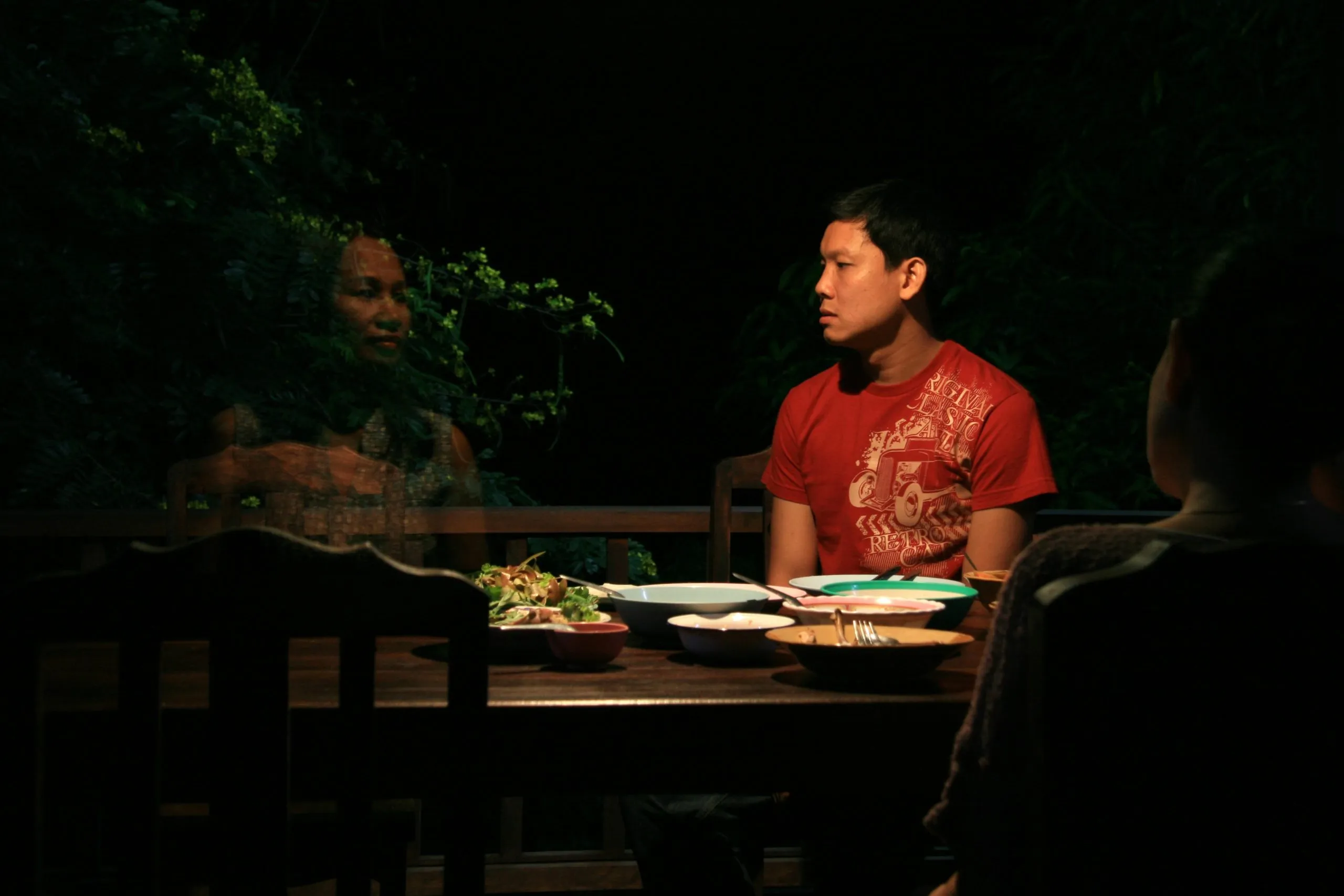
Spirits, humans, and Boonmee: an optimistic Thai tale on death
As its title suggests, Apichatpong Weerasethakul’s 2010 Uncle Boonmee Who Can Recall His Past Lives is a movie about Boonmee, who has the rather peculiar ability to control and partly manipulate his memory. The story revolves around the dying Uncle, who is visited by the spirits of his dead wife and missing son. Exploring the themes of reincarnation and transformation, the movie communicates in a tranquil and unhurried way the close relationship between the living world —as we know it— and the world of spirits, living in a dark and mysterious jungle. In this surrealistic investigation of memory and place, the distinction between the real and the fictional dissolves as humans and incorporeal beings make love, share their dinner, assist each other, and are part of the same cinematic universe.
The Journey to the Roots
The film’s artistic value has been largely discussed by film critics, most notably after the movie received what is considered to be one of cinema’s highest honors —the Cannes Palm d’Or. Tim Burton and Benicio Del Toro, on the jury at the Cannes Film Festival, said the film brought a new perspective to their understanding of death. Described by film critics as “a beautifully assembled affair”, “a work of unostentatious beauty and uncloying sweetness”, “free-spirited, hypnotic masterpiece”, Weerasethakul’s tale was praised for its unique narrative and cinematic approach.
Alongside the film’s artistic value, it is worth exploring its significance in relation to history and memory. The idea for Uncle Boonmee came from a book written by a Buddhist monk about an old man, who could remember his past lives as an elephant hunter or a wandering ghost. After completing his script in 2008, Weerasethakul started his journey to find Boonmee’s surviving relatives. Among the several villages he visited, one would be the catalyst in his later work —the village of Nabua. Nabua is located in the province of Nakhon Panom (see map below), on the borders between Thailand and Laos. Its occupation by the Thai army from the 1960s to the early 1980s transformed the village into a scene of violence against the villagers, who were physically and psychologically abused on suspicion of being or helping Mao-influenced communists.
The village of Nabua is located in the province of Nakhon Panom, on the borders between Thailand and Laos (blue star on the map).
The Village of Nabua and the Primitive Project
Nabua’s tragic memories served as the basis for Weerasethakul’s multi-platform project named Primitive with Uncle Boonmee constituting a vital part of it. Primitive was an innovative project aiming to explore remembrance and extinction. Amid the rise of Thai nationalism in 1979 and the decline of the Communist Party of Thailand, the memories of a traumatic past were fading away. This is where Primitive came, intending to re-imagine Nabua as “a place where memories and ideologies are extinct.”

Apichatpong Weerasethakul on the set of Uncle Boonmee Who Can Recall His Past Lives (photo: kickthemachine.com)
When asked about why he chose this name for the project, the director used the conceptual duality of its meaning as the basis for his explanation. He explained that Thai’s government system is “primitive” because it’s “full of corruption and full of things you can’t imagine happening in this day” and that people’s dreams about the future are primitive because their dreams are not about machines, but about “going back to the roots (…), about and agriculture-based society, about going back to the basics.”
This is essentially what Uncle Boonmee represents, an emblem of something that is eroded by the hyper-capitalist modernity. As reconciliation with the past has come in a paradoxical way for this period —by suppressing the memory— Boonmee serves as the means to potentially preserve this part of the past.
[imdb id=“tt1588895”]